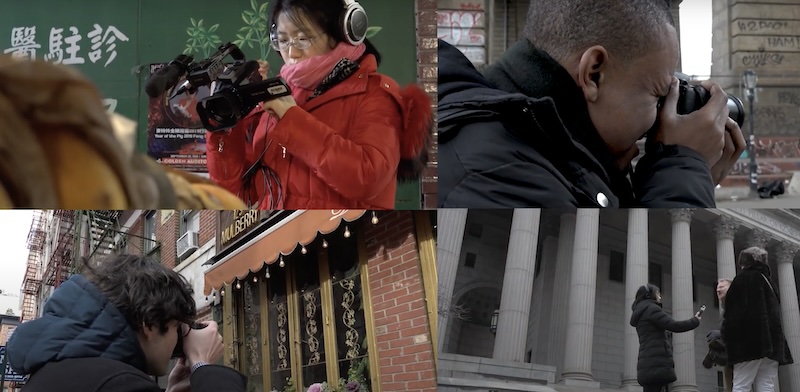For the past four years, I have been working toward starting an online master’s degree program in journalism at NYU. Finally, that day has arrived.
Now that we are accepting applications for our inaugural class that will start this fall, I would like to tell you about the program. In this series of blog posts, I will usher you behind the scenes. Over the coming months, I, along with members of my team, will explain why and how we’ve built it, discuss our educational philosophy, reveal some of the innovations that we will soon roll out, and explain how online classes differ from traditional in-person study and require new and different ways of thinking. Indeed, they offer significant advantages to traditional coursework, as well.
This is the first online Master’s degree offered by the Graduate School of Arts & Sciences, which is NYU’s largest school. The curriculum for this 30-credit distance-learning program is modeled after our existing Journalism Master’s programs and matches them in rigor and substance. Before NYU would give me the green light, I had to assure deans and faculty alike that the program would maintain the same high standards as the other programs. It also shares the same goals as the other journalism master’s concentrations, which are to educate the next generation of journalists and improve the quality of journalism. The key difference is that students from around the world can pursue a rigorous course of study with internationally acclaimed faculty without the need to relocate to New York City.
Despite relentless attacks on the credibility of journalists and journalism by this White House and others, quality journalism, the sort taught at NYU, has always been important and never more so than today. At its best, journalism acts as a check on the power of government, informs its citizenry, and offers a voice to those who historically haven’t had one. It is the model on which journalists from around the world try to pattern their work. With this online master’s in journalism program we believe we have the potential to make a real and lasting contribution.
In New York, we can only train a limited number of students each year. With an online journalism master’s program we can reach so many more. We want to attract applicants from all over the world, people who are working jobs or tending to loved ones and cannot attend NYU in person, or have graduated from undergraduate institutions and are eager to gain an NYU education in journalism but for whatever reason cannot relocate. We welcome career switchers and people who have been out of school a long time and want to return.
This online master’s program is the exact opposite of a MOOC (massive open online class). Writing courses are capped at 15 students, and each student receives extensive feedback on every assignment. Through our online classroom platform, students have just as much, if not more, face time with professors and each other. Students collaborate to operate a professional publication, acting as everything from copyeditor to editor-in-chief, art director to managing editor, and everything between. Each student will be paired with a professional journalist to serve as a mentor throughout their time in the program.
Some innovations include:
- World-class faculty: Our professors are among the best in the business and have written for The New York Times, Washington Post, The Economist, Forbes, and Wired, or worked at CNN, ABC News, and elsewhere.
- Choice of pathways: Students can earn a master’s degree from NYU in as little as a year, 18 months, two years, or attend part-time and go at their own pace.
- Flipped classroom: We’re turning the instructional model on its head. Students will study videos, podcasts, guided readings, and other interactive materials on their own time, and then spend class time workshopping ideas, and editing and revising stories for our online publication with their professor’s guidance.
- A journalism game, set in a virtual world: In collaboration with NYU’s Computer Science Department, we’re designing a game in which students don avatars and report out a story–conducting research, interviewing sources, filing Freedom of Information Act Requests, and much more.
- Reporting exercises in 360-degree video: This immersive exercise drops students into locations around the world, where they can not only watch a recorded interview, but also take in the surrounding scene as if they are reporting the story in person.
- Virtual writing center: Students receive personalized feedback on their writing and other media
- Mentor program: Each student will be paired with a professional journalist, an expert in the student’s area of interest. Our mentors work at top media companies, including The New York Times, CNN, the Washington Post, and many more.
- English-as-a-second language instruction: We provide help in everything from grammar and punctuation to word word usage, pronunciation, listening comprehension, and more for any student who wants it.
- Instruction in podcasting, video and audio production, photography, graphic journalism (cartoons, comics, illustrations, data visualization, and more).
In future blog posts, we will share more details. Until then, explore our webpage, and if you have any questions, email me at adam.penenberg@nyu.edu, or the program administrator, Bartie Scott at bartie.scott@nyu.edu.


